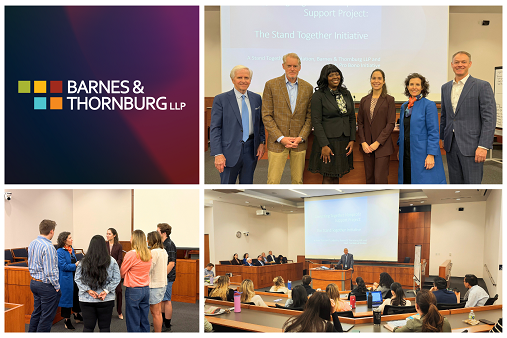Highlights
AB 2432 imposes stiff new financial penalties on companies convicted of state law felonies and misdemeanors in California
Companies subject to the new “corporate white collar criminal enhancement” could face fines of up to $25 million, or twice the value of the damage caused by offense, whichever is greater
Businesses operating in California should consider reassessing their compliance programs and risk management strategies to avoid the heightened financial exposure under the new law
California Gov. Gavin Newsom recently signed Assembly Bill 2432 (AB 2432) into law, meaning that effective Jan. 1, 2025, companies convicted of crimes in the state will be subject to severe new financial penalties. This law, aimed at curbing corporate misconduct, introduces enhanced fines for companies convicted of felonies or misdemeanors and directs that a portion of the collected fines be used to shore up the California Crime Victims Fund.
Because these new provisions apply to corporations, partnerships, trusts, LLCs, and public entities, all businesses operating in the state should consider the heightened legal and financial risks associated with any state criminal conviction.
AB 2432 created a new provision, California Penal Code § 1398, which allows courts to impose additional fines of up to the greater of $25 million or (if the offense resulted in the loss of a victim’s money, labor, or property) twice the value of the loss. The additional fine is discretionary, and courts are directed to consider the seriousness of the offense, persistence of conduct, and the corporation's assets when setting the actual amount.
Separately, AB 2432 also amends California Penal Code § 1202.4(r) by mandating “restitution fines” of up to $100,000 for felonies and $1,000 for misdemeanors unless there is a “compelling and extraordinary reason” not to impose them.
While this enhancement will likely apply most often in large white collar fraud cases, California state prosecutors can seek the enhancement in a wide variety of corporate criminal contexts, including environmental violations and consumer fraud offenses.
The law’s financial impact extends beyond the additional penalties themselves. In some cases, fines under AB 2432 will compound already existing penalties, leading to significant increases in total liability. For example, a business convicted of defrauding consumers could see its penalty skyrocket due to the added assessments and enhancements.
The legislative intent here is clear: California is seeking to deter corporate malfeasance and hold corporations accountable for their misconduct.
Another driving force behind AB 2432 was the need to provide a stable funding source for California’s Crime Victims Fund. This fund, which supports programs aiding victims of human trafficking, domestic violence, and child abuse, had been facing budgetary challenges due to declining federal contributions. The bill aims to address this by funneling the proceeds from corporate crime penalties directly into these services.
Takeaways
While policymakers and politicians may disagree about whether AB 2432 will have the desired effects, companies operating in California should not wait for that debate to unfold before taking appropriate steps, including reviewing and strengthening their compliance programs. Businesses should consider identifying the greatest risks to their organizations posed by California state laws and taking proactive steps to ensure their operations and practices adhere to these legal standards.
Responding in this way will not only reduce the risk of a violation in the first place but may also help the company in the event that an undiscovered violation later comes to light. By instilling a culture of compliance before a violation has been discovered, a corporation will have a persuasive argument to the prosecutor and the court regarding whether the severe new penalties of AB 2432 are warranted.
For more information, please contact the Barnes & Thornburg attorney with whom you work or Eric Beste at 619-321-5015 or eric.beste@btlaw.com or Oliver McClymonds at 619-321-5007 or oliver.mcclymonds@btlaw.com.
© 2024 Barnes & Thornburg LLP. All Rights Reserved. This page, and all information on it, is proprietary and the property of Barnes & Thornburg LLP. It may not be reproduced, in any form, without the express written consent of Barnes & Thornburg LLP.
This Barnes & Thornburg LLP publication should not be construed as legal advice or legal opinion on any specific facts or circumstances. The contents are intended for general informational purposes only, and you are urged to consult your own lawyer on any specific legal questions you may have concerning your situation.













